 2012 Peugeot 107 (Phase III, 2012) 3-door Dimensions, Size & Specs
2012 Peugeot 107 (Phase III, 2012) 3-door Dimensions, Size & SpecsMeasurements of the 2012 Peugeot 107 3-door, engineered for optimal performance and comfort
| Dimensions | |
|---|---|
| Length: | 3430 mm135.0 in11.3 ft |
| Width: | 1630 mm64.2 in5.3 ft |
| Width (Opened Mirrors): | 1855 mm73.0 in6.1 ft |
| Height: | 1465 mm57.7 in4.8 ft |
| Trunk Capacity: | 130 liter4.6 cu ft |
| Trunk Capacity (Max): | 712 liter25.1 cu ft |
| Weight Specifications | |
| Curb Weight: | 825-843 kg1819-1858 lbs |
| Maximal permitted Weight: | 1180 kg2601 lbs |
| Roof Load: | 50 kg110 lbs |
| Tire Specifications | |
| Rims Size: | 14-inch rims:
|
| Tire Size: |
|
The Peugeot 107 Phase III (2012) 3-door hatchback is a compact city car designed to offer efficient urban mobility with a practical footprint. Produced from 2012 to 2014, this model emphasizes space optimization within its small exterior dimensions. The vehicle measures 3430 mm (135.0 inches) in length, 1630 mm (64.2 inches) in width, and 1465 mm (57.7 inches) in height, making it ideal for navigating narrow streets and tight parking spaces. When considering the vehicle width with opened mirrors, it spans 1855 mm (73.0 inches).
The Peugeot 107 Phase III weighs between 825 and 843 kg (1819 to 1859 lbs) curb weight, with a maximum weight capacity of 1180 kg (2601 lbs). This light weight contributes to its fuel efficiency and easy handling, typical traits for vehicles in the city car segment. The car is equipped with 14-inch rims sized at 4.5J x 14, using tires of dimension 155/65 R14, balancing comfort and compact stiffness for urban driving.
A notable feature of the Peugeot 107 is its luggage capacity. It offers a modest 130 liters (4.6 cubic feet) of boot space with the rear seats up, which expands significantly to 712 liters (25.1 cubic feet) when the rear seats are folded down. This flexibility allows drivers to adapt the interior space for various cargo needs. The roof load capacity is 50 kg (110 lbs), providing additional options for carrying lightweight items or roof racks.
Overall, the Peugeot 107 Phase III (2012) 3-door hatchback is tailored for drivers seeking a small yet functional vehicle that can easily handle city environments while providing practical storage solutions. Its compact size, low weight, and adaptable cargo volume make it a strong contender in the subcompact hatchback segment.
Discover the standout features that make the 2012 Peugeot 107 3-door a leader in its class
Have a question? Please check our knowledgebase first.
The Peugeot 107 Phase III (2012) 3-door hatchback measures 3430 mm (134.96 inches) in length, providing a compact footprint ideal for urban driving and parking. The width is 1630 mm (64.17 inches), which ensures good maneuverability through narrow city streets. With mirrors opened, the width extends to 1855 mm (73.03 inches), an important consideration for tight spaces. The height of the vehicle is 1465 mm (57.68 inches), which contributes to a balanced and distinctive profile while offering adequate headroom inside the cabin.
The Peugeot 107 Phase III 3-door has a curb weight ranging between 825 and 843 kg (1819 to 1859 lbs), which is relatively light, making it efficient in fuel consumption and nimble to drive in city traffic. Its maximum allowed weight is 1180 kg (2601 lbs), including passengers and cargo. The light curb weight combined with a compact design results in responsive handling and easy maneuverability. This weight balance is ideal for a city-focused hatchback, offering agility without compromising structural strength or safety.
The Peugeot 107 Phase III offers a practical luggage capacity of 130 liters (4.59 cubic feet) when the rear seats are in their upright position, suitable for daily grocery runs or small luggage. When the rear seats are folded down, this space significantly expands to 712 liters (25.13 cubic feet), allowing for larger cargo items, making it surprisingly versatile for a small city car. This flexibility is useful for users who occasionally need to transport bulky or lengthy items without upgrading to a larger vehicle.
The roof load limit for the Peugeot 107 Phase III (2012) is 50 kg (110 lbs). This means you can safely transport lightweight items on the roof rack or roof bars, such as bicycles, luggage boxes, or camping gear. However, because the vehicle is compact with a relatively low curb weight, staying within this limit is critical to maintain stability, safety, and prevent excessive wear on the roof structure. Exceeding the roof load capacity could negatively affect handling and fuel efficiency.
The Peugeot 107 Phase III (2012) is equipped with 14-inch rims sized 4.5J x 14, paired with tires sized 155/65 R14. These dimensions contribute to a compact wheel setup that enhances the car’s agility and responsiveness in urban environments. The relatively narrow 155 mm tire width improves fuel economy and reduces road noise, although it may limit performance on rough terrain or at higher speeds compared to larger tires. This combination offers a comfortable ride with adequate grip for city driving conditions.
Yes, the Peugeot 107 Phase III 3-door easily fits into a standard garage. With a length of 3430 mm (approximately 11.25 feet), width of 1630 mm (about 5.35 feet) and a height of 1465 mm (around 4.8 feet), it is compact enough to park comfortably within the average garage space typically sized for larger vehicles. When considering mirror clearance, the width extends up to 1855 mm (6.1 feet), so it is advisable to fold the mirrors in to maximize ease of parking and reduce risk of damage in tighter spaces.
The 2012 Peugeot 107 Phase III largely maintains the compact dimensions of its predecessor models in the 107 series, focusing on urban agility and fuel efficiency. While specific incremental changes in weight and dimension are minimal, improvements in design and material use aimed to reduce curb weight slightly, enhancing fuel efficiency and performance. Dimensions such as length, width, and height remain very similar, with emphasis placed on improving interior flexibility and cargo space, as seen in the impressive increase in luggage capacity when folding rear seats down.
The Peugeot 107 Phase III shares many characteristics with its twin models, the Toyota Aygo and Citroën C1, as they were developed jointly with similar dimensions, engines, and features. All three cars have a similar length around 3.4 meters, narrow width for urban maneuvering, and comparable weights, making their driving dynamics very close. The 107 is known for a slightly distinct styling and user-friendly interior. In terms of cargo space, they offer comparable flexibility, making any of these models a strong candidate for buyers seeking an efficient city car with practical dimensions.
The Peugeot 107 Phase III 3-door excels as a city car due to its compact footprint, making parking and navigating heavy urban traffic stress-free. Its light weight (825-843 kg) enhances fuel efficiency and nimble handling, while the relatively narrow width of 1630 mm (64.17 inches) allows easy access to tight spots and narrow streets. Additionally, flexible luggage capacity supports a variety of passenger and cargo arrangements. These features combined make the 107 a practical and economical choice for daily city commutes and short trips.
Despite its small exterior dimensions, the Peugeot 107 Phase III 3-door is designed to optimize interior space for driver and passengers. Its compact yet efficient layout provides sufficient headroom and legroom for front occupants, though rear seat space is more limited, typical for a car in this segment. Comfort features focus on essential amenities such as adjustable seats and user-friendly controls. The car's design prioritizes ease of use and practicality over luxury, making it a sensible choice for budget-conscious consumers seeking straightforward, reliable transport.
Discover similar sized cars.
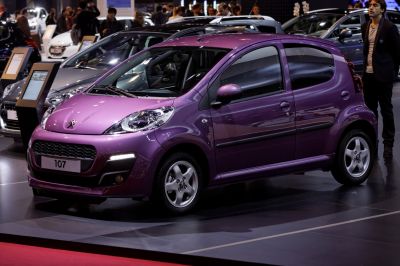
| Production: | 2012-2014 |
|---|---|
| Model Year: | 2012 |
| Length: | 3430 mm135.0 in |
| Width: | 1855 mm73.0 in |
| Height: | 1465 mm57.7 in |
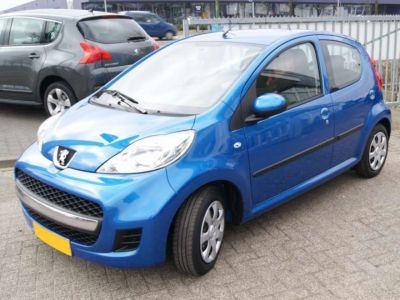
| Production: | 2008-2012 |
|---|---|
| Model Year: | 2009 |
| Length: | 3430 mm135.0 in |
| Width: | 1855 mm73.0 in |
| Height: | 1465 mm57.7 in |
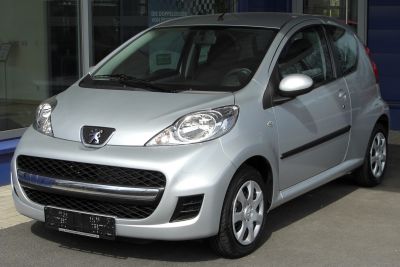
| Production: | 2008-2012 |
|---|---|
| Model Year: | 2009 |
| Length: | 3430 mm135.0 in |
| Width: | 1855 mm73.0 in |
| Height: | 1465 mm57.7 in |
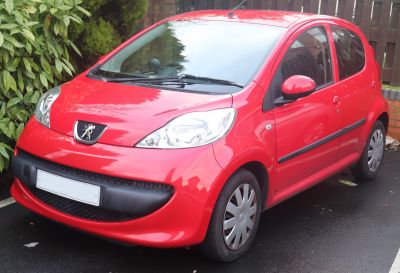
| Production: | 2005-2008 |
|---|---|
| Model Year: | 2005 |
| Length: | 3430 mm135.0 in |
| Width: | 1855 mm73.0 in |
| Height: | 1470 mm57.9 in |
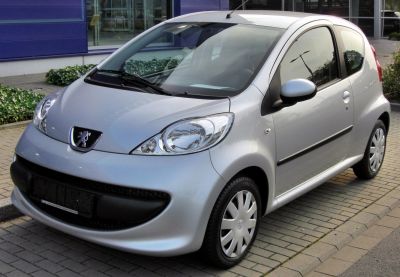
| Production: | 2005-2008 |
|---|---|
| Model Year: | 2005 |
| Length: | 3430 mm135.0 in |
| Width: | 1855 mm73.0 in |
| Height: | 1470 mm57.9 in |
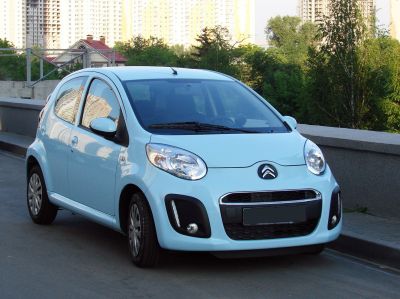
| Production: | 2012-2014 |
|---|---|
| Model Year: | 2012 |
| Length: | 3440 mm135.4 in |
| Width: | 1855 mm73.0 in |
| Height: | 1465 mm57.7 in |
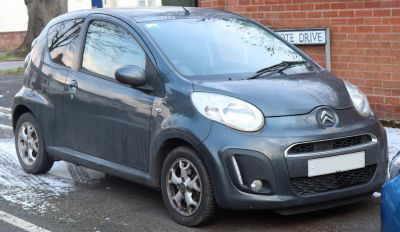
| Production: | 2012-2014 |
|---|---|
| Model Year: | 2012 |
| Length: | 3440 mm135.4 in |
| Width: | 1855 mm73.0 in |
| Height: | 1465 mm57.7 in |
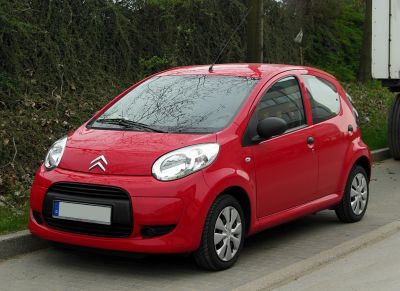
| Production: | 2008-2012 |
|---|---|
| Model Year: | 2008 |
| Length: | 3435 mm135.2 in |
| Width: | 1855 mm73.0 in |
| Height: | 1470 mm57.9 in |
